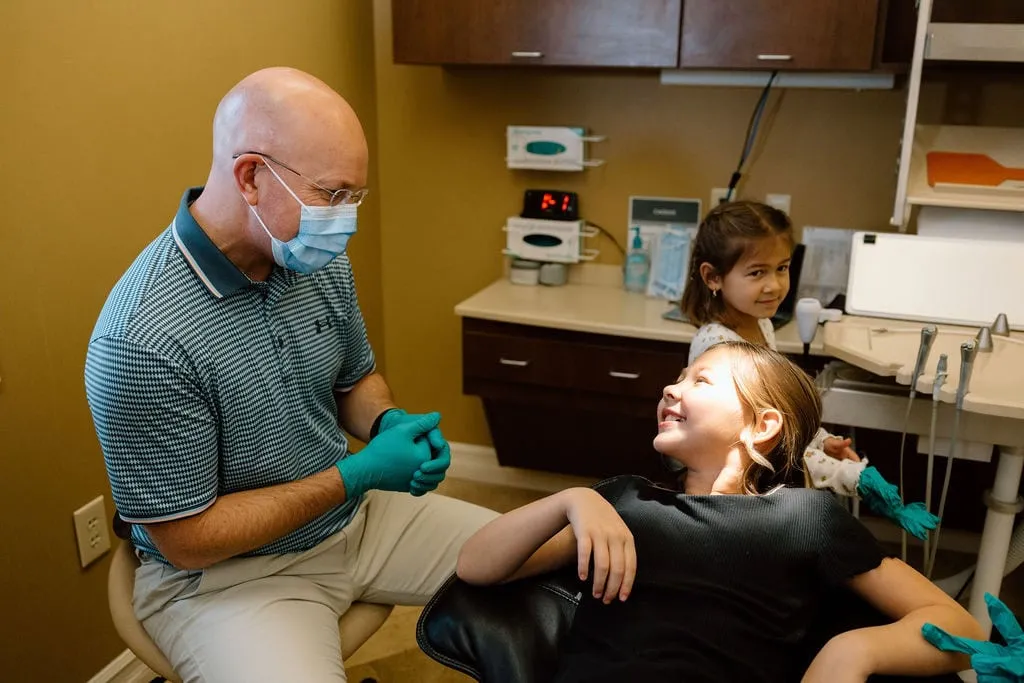A good night’s sleep is essential for overall health, but for people with sleep apnea, rest often comes in short supply. Sleep apnea is a condition in which breathing repeatedly stops and starts during sleep. While it’s often considered a medical issue, dental care can play a surprisingly important role in identifying and managing certain types of sleep apnea.
Understanding Sleep Apnea
There are three main types of sleep apnea:
- Obstructive Sleep Apnea (OSA) — The most common form, caused by a physical blockage of the airway, usually when the soft tissues in the throat or tongue collapse during sleep.
- Central Sleep Apnea (CSA) — A less common form, in which the brain fails to send proper signals to the muscles that control breathing.
- Complex Sleep Apnea — A combination of obstructive and central sleep apnea.
This blog focuses on obstructive sleep apnea, where dental professionals can often assist in detection and treatment.
Signs and Symptoms of Sleep Apnea
Many people with sleep apnea are unaware they have it because the symptoms occur during sleep. Common signs include:
- Loud, chronic snoring.
- Pauses in breathing observed by a partner.
- Gasping or choking during sleep.
- Waking up tired despite a full night’s sleep.
- Morning headaches or dry mouth.
- Daytime fatigue and difficulty concentrating.
If left untreated, sleep apnea can increase the risk of high blood pressure, heart disease, stroke, diabetes, and other serious health issues.
The Link Between Dental Health and Sleep Apnea
Your oral and airway structures play a big role in breathing during sleep. Dentists are uniquely positioned to spot potential signs of airway problems during routine exams. Factors a dentist might notice include:
- Narrow dental arches.
- Recessed jaw or small airway opening.
- Enlarged tongue or tonsils.
- Excessive tooth wear from nighttime grinding (often linked to disrupted sleep).
By recognizing these signs early, dentists can help guide patients toward a diagnosis and treatment plan.
Dental Solutions for Sleep Apnea
For mild to moderate obstructive sleep apnea, dental treatment can sometimes replace or supplement other therapies like CPAP (Continuous Positive Airway Pressure) machines. Common dental solutions include:
Custom Oral Appliances
A custom-made device worn during sleep can gently reposition the lower jaw or tongue to keep the airway open. Benefits include:
- Greater comfort compared to CPAP masks.
- Easy portability for travel.
- Quiet operation without machine noise.
Orthodontic Treatments
In children and teens, orthodontic solutions like palatal expanders can improve airway space by guiding proper jaw growth. In adults, orthodontics may also help in certain cases.
Bite and Jaw Alignment Adjustments
Correcting misaligned teeth and jaws can improve how the airway functions during sleep, potentially reducing apnea symptoms.
The Importance of a Professional Diagnosis
While dentists can play a role in identifying and treating sleep apnea, a formal diagnosis requires a sleep study (polysomnography). This test measures breathing patterns, oxygen levels, and other factors while you sleep, either at home or in a sleep lab.
Once a diagnosis is confirmed, dental treatment can be coordinated with other medical care to ensure the best results.
Lifestyle Changes to Support Better Sleep
Dental solutions often work best when paired with healthy habits that promote good airway function:
- Maintain a healthy weight — Excess weight can increase tissue around the airway.
- Avoid alcohol before bed — It can relax throat muscles and worsen airway collapse.
- Sleep on your side — This position reduces the likelihood of airway obstruction.
- Practice good oral hygiene — Healthy gums and teeth support overall oral function and comfort.
How Dental Care Improves Quality of Life
Treating sleep apnea isn’t just about reducing snoring — it’s about improving your overall health and daily energy. Addressing sleep apnea can:
- Lower the risk of heart and metabolic diseases.
- Improve mood and mental clarity.
- Reduce morning headaches and jaw discomfort.
- Support healthy teeth and gums by addressing related grinding and clenching.
Better sleep often leads to better overall quality of life.
The Takeaway
Sleep apnea is a serious condition, but help can come from more places than you might expect — including your dentist’s office. By evaluating the structure of your teeth, jaw, and airway, dental professionals can identify potential sleep apnea concerns and offer effective, comfortable solutions.
Sleep Apnea Solutions in Jackson, MI
At Watterson Dentistry, we work with Jackson, MI patients to help identify and manage obstructive sleep apnea through custom dental appliances and other oral health solutions. If you suspect sleep apnea is affecting your health, contact us today to schedule an evaluation and take the first step toward better sleep and better health.
